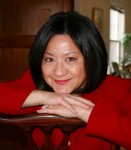Art of Column Writing

Suzette Standring
By Suzette Martinez Standring
Past President
National Society of Newspaper Columnists
No matter what our specialty is, we can learn from columnists with a very different focus. Joel Brinkley, who also serves as the NSNC education chair, is one of only a handful of foreign affairs op-ed columnists in the United States.
Joel served as a reporter for 30 years, traveling worldwide to break news on bombings, drug cartels, wars, and disasters. His international reporting on the Khmer Rouge regime in Cambodia led to a Pulitzer Prize in 1980. What set his work apart? Seeing events unfold through fresh eyes. According to Joel, reporters based in a region for a long time can develop jaded perspectives. They feel they know so much about a subject that it no longer bears reporting. “I immersed myself in refugee camps in Cambodia in ways that no one else did. I had never been to Southeast Asia, and so I saw things that some foreign correspondents didn’t see any longer,” he said.
In 2006, after three decades as a reporter, he became a foreign affairs columnist, which was challenging at first.
“I still had the practice of coming to a conclusion, and calling someone else to say it. Having the confidence to draw assumptions from the facts on my own without relying on other people to do that was the hardest thing for me in transitioning from news writing to opinion writing.” Syndicated with Tribune Media Services and featured on TMS’ “American Voices,” Joel offers a global perspective as part of a team that includes fellow columnists Robert Reich, Rachel Marsden and Ta-Nehisi Coates.

Joel Brinkley
How to follow in Joel’s footsteps? Reporters should seek opportunities to follow international stories. Asking to pursue a story abroad might land a residential assignment. “These days it is a lot harder to be a foreign correspondent, but so much of what happens in American government is related to foreign issues,” he said.
Be entrepreneurial and aggressive. Have a background that will convince editors you are the right person to write that column.
Generating ideas is key, as is the ability to look at an event and come up with a unique angle.
To write a powerful column in 750 words, Joel offered a few basics.
Have one theme per column. Hit one important idea and support it in a variety of ways.
Write for the simplest member of your audience. Assume some readers know little about anything in your column. Don’t lard columns down with jargon or issues that cannot be explained.
Inform. “I always over-report. I don’t think it’s possible to inundate a reader in 750 words.”
Research. “I always do far more research than I have the space to use it. It gives me the confidence to write what is well informed.”
Reluctant Sources. “Every story has two sides. If I want somebody on one side to talk to me, I tell them that the other party has spoken to me, and I don’t think they should be allowed to say [fill in the blank.]”
Joel Brinkley is the rare foreign affairs op-ed columnist, yet much of his advice can apply to many types of column writing.
• • • • •
Suzette Standring is writing a new book, Opinion Writing, which is a sequel to The Art of Column Writing. It will feature writing advice from respected op-ed columnists. This abbreviated except is taken from her manuscript. Publisher Marion Street Press plans to release her new book in late 2013. Email her: suzmar@comcast.net or visit www.readsuzette.com.
This column was first published in the September 2012 edition of The eColumnist, the monthly newsletter of the National Society of Newspaper Columnists. The full newsletter is available only to NSNC members. For more information, please see our Join or Renew page.

Stoopendaal Map of the World – 1730

